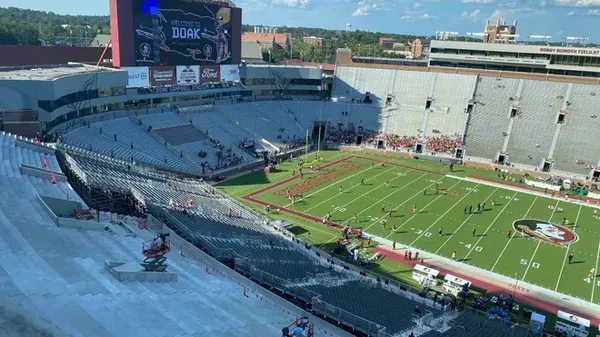Florida State head coach Mike Norvell has sparked significant controversy after agreeing to redirect $4.5 million of his $10 million annual salary back to the football program. While the university frames this decision as a contribution to its “vision of excellence” initiative, the timing has led many to question whether this move was voluntary or a consequence of the team’s disastrous 2-10 record in the 2024 season. Fans and analysts are fiercely debating whether this is an act of leadership or a covert penalty imposed on Norvell.

Critics argue that no one parts with $4.5 million willingly unless under extraordinary circumstances. On a recent episode of Crain & Company, analysts openly mocked the decision, suggesting that the figure reflects the severity of the program’s frustration with Norvell. One commentator quipped, “Four and a half million—you know how bad you had to screw up to have to pay that much? This screams 2-10 season. How do you even come up with that number? The program must be fuming.”
The fallout from Norvell’s disastrous season has overshadowed his previous successes. After leading Florida State to an undefeated 2023 season, capped by an ACC championship, the 2024 campaign was an abrupt decline. With no conference wins, no bowl game appearances, and a rapid loss of fan support, the pressure on Norvell has been immense. Many believe that the financial gesture is less about generosity and more about accountability.

Comparisons have been drawn between Norvell’s decision and Deion Sanders’ contributions to Jackson State during his tenure. Sanders famously pledged $150,000 of his own salary to improve the program. However, analysts are quick to note the significant differences in context. Sanders’ gesture came during a period of sustained success at Jackson State, whereas Norvell’s “contribution” follows one of the worst seasons in Florida State’s history.
Norvell himself has defended the decision, aligning with the program’s framing of it as a proactive leadership move. “I wanted to be proactive in my financial assistance through this time of transition as we all push forward to get back to the standard of Florida State football,” Norvell stated. He expressed confidence in the program’s future, stating that “great days are ahead” and emphasizing that this step would help accelerate the rebuilding process.
While Norvell and Florida State officials portray the move as a noble gesture, many experts remain unconvinced. Analysts argue that the timing of the decision suggests it was tied directly to the team’s poor performance, further fueling speculation about whether it was truly voluntary. For now, Norvell’s legacy remains in flux. He was once celebrated as the architect of Florida State’s return to prominence, but now he faces scrutiny over whether his “contribution” can help salvage the program and his career.
Only time will tell if the sizable financial gesture will have a lasting impact on the program’s fortunes, but the debate over its true nature is likely to continue for the foreseeable future.